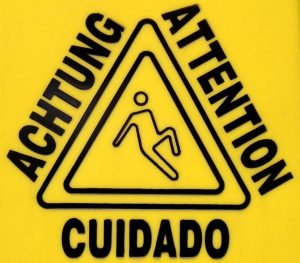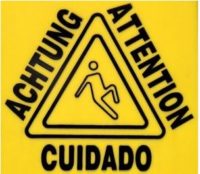Hotel Slip and Fall Injury Leads to $4.75M Settlement
Hotel Slip-and-Fall Injury Lawsuit Leads to $4.75M Settlement
Law.com recently reported a hotel agreed to a $4.75 million settlement paid to a slip-and-fall victim who suffered serious injury to her right knee. Although that sounds like a substantial sum, it begins to make more sense when you put it in the context of the exact circumstances of the case. That kind of a damage award isn’t just forked over in a Miami slip-and-fall case. You need a solid tort claim – and an experienced hotel injury lawyer.
Hotel Slip-and-Falls in Florida
When you visit a resort or hotel in Florida, you have a right as a visitor to expect the property will be kept in reasonably safe condition. No one anticipates heading to the hospital on vacation.
Unfortunately, hotel floors are prone to slip, trip and fall risks that can leave guests with serious and lasting injuries. Some examples our Miami hotel injury attorneys have seen include:
- Slippery spots around pools
- Bathrooms in disrepair
- Wet areas around ice machines
- Freshly-mopped floors with no caution signs
- Pool/rainwater tracked in from guests with no mats to catch it
- Entryways that are obstructed/in disrepair
This list isn’t exhaustive, but it gives you an idea of some of the more common dangerous conditions that can give rise to Florida hotel slip-and-fall lawsuits. These fall under a category of tort law known a “premises liability,” meaning the property owner or controller is responsible for keeping lawful guests safe.
In Florida, the duty of care owed depends largely on the guest’s purpose on site. Individuals who are paying customers, on site for the benefit of the property owner are owed the highest duty of care. That means hotels are responsible not just to warn guests of known hazards, but to check for them regularly and address them promptly when discovered.
When Hotel Slip-and-Fall Injuries Cause Significant Damage
As long-time Miami hotel injury attorneys, one of the first questions potential clients have is, “How much is my case worth?” The answer depends on a number of factors, including:
- How easy will it be to establish liability (will mean reduced litigation costs);
- Whether the person injured shared any portion of the blame (in Florida, will not bar your claim, but instead proportionately reduce payout, per F.S. 768.81);
- The degree to which the injury affects (or has affected) one’s ability to work;
- The degree to which the injury impacts a person’s ability to enjoy life as they did before.
In the recent case reported by Law.com, plaintiff is a former paralympian skier who previously won three gold medals skiing with a team using a prosthetic leg. She was staying at a hotel in New Hampshire when she stepped out of an elevator and slipped on freshly-mopped floor. She fell and landed on her right knee. She didn’t break any bones, but suffered permanent injury to the cartilage in her right knee, which required three surgeries. She also can no longer ski standing up, and instead is trying to learn “sit-skiing.”
She’d been born without her left leg, and the prosthetic she wore was broken in the fall. Prosthetic legs can cost up to $50,000 each, and even the best only have a limited use. In addition to needing a replacement, the damage to her right knee has meant diminished ability to get around her home and office without a prosthetic (which she can’t where all the time). Even with it, she still has a tougher time than before with basic tasks like standing, walking and maintaining her balance, especially going up stairs or uneven surfaces.
At the time of the accident, she worked as a software trainer. However, her employer dismissed her after her injury because she was no longer able to travel. She was able to find another job that allowed her to work from home. However, it did not pay as much and offered no benefits.
All of this played a part in the settlement, reached on the eve of trial.
One of the primary issues on the question of liability was whether plaintiff had adequate warning of the dangerous condition (i.e., the recently-mopped floor just outside the elevator doors). The hotel claimed the employee placed wet floor warning signs on the mopped floor; this fact wasn’t disputed. The question was whether those signs were visible by those stepping out of the elevator. The hotel claimed they were, something the plaintiff challenged.
Defendant hotel also argued plaintiff was not as cautious as she should have been stepping off that elevator.
Ultimately, defendant chose not to take the case to trial, instead settling just days before.
Contact the South Florida personal injury attorneys at Halberg & Fogg PLLC by calling toll-free at 1-877-425-2374. Serving West Palm Beach, Miami, Tampa, Orlando and Fort Myers/ Naples. There is no fee unless you win.
Additional Resources:
Paralympian Skier’s Hotel Fall Leads to $4.75M Settlement in Middlesex, March 15, 2019, By Charles Toutant and Suzette Parmley, The New Jersey Law Journal
More Blog Entries:
Florida Wrongful Death Claims Often Paid by Homeowner Insurance, March 8, 2019, Miami Hotel Slip-and-Fall Lawyer Blog









